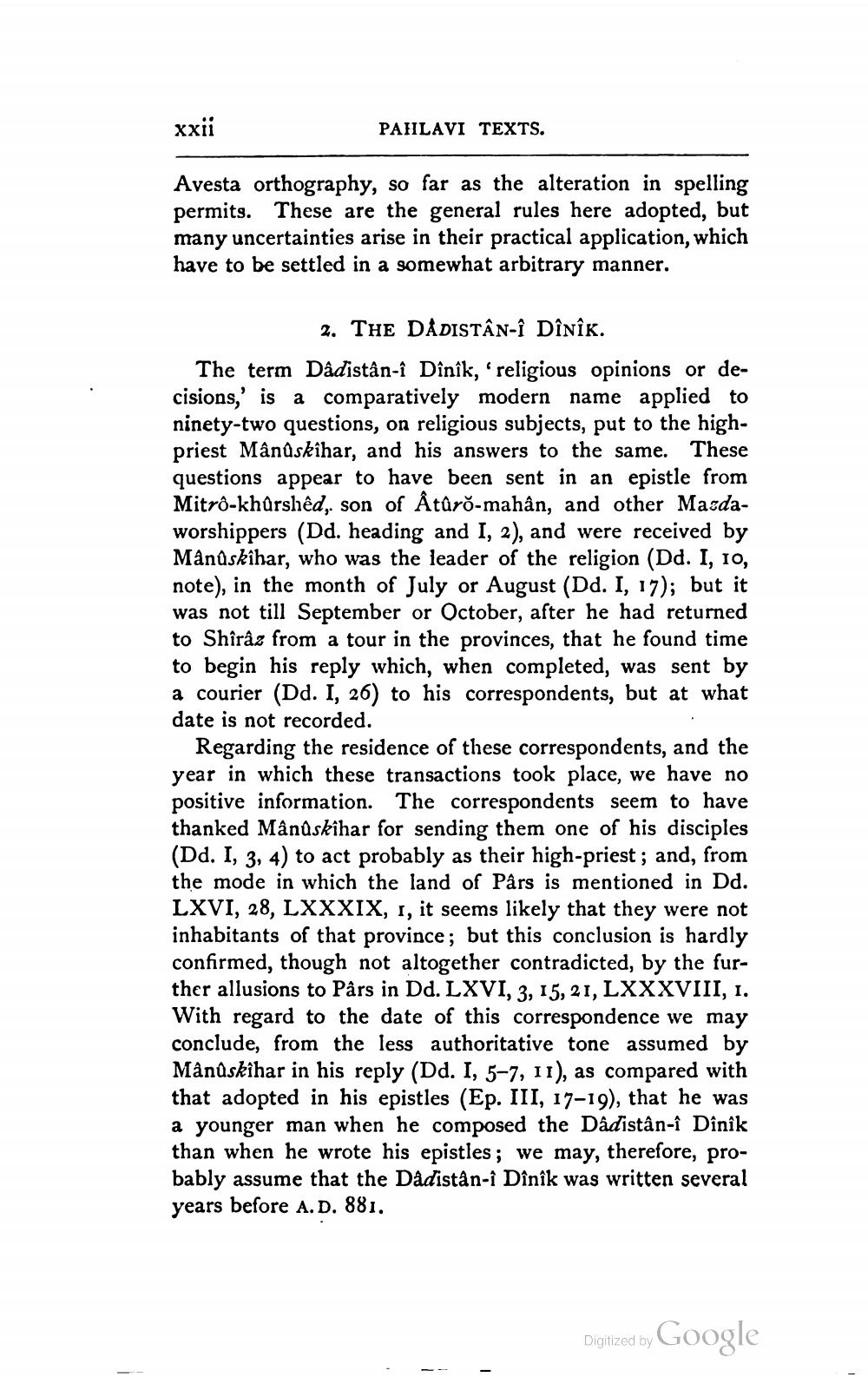________________
xxii
PAHLAVI TEXTS.
Avesta orthography, so far as the alteration in spelling permits. These are the general rules here adopted, but many uncertainties arise in their practical application, which have to be settled in a somewhat arbitrary manner.
2. THE DA DISTÂN-I DÎNÎK.
The term Dâdistân-î Dînîk, 'religious opinions or decisions,' is a comparatively modern name applied to ninety-two questions, on religious subjects, put to the highpriest Manuskihar, and his answers to the same. These questions appear to have been sent in an epistle from Mitrô-khûrshed, son of Atūro-mahân, and other Mazdaworshippers (Dd. heading and I, 2), and were received by Mânûskîhar, who was the leader of the religion (Dd. I, 10, note), in the month of July or August (Dd. I, 17); but it was not till September or October, after he had returned to Shîrâz from a tour in the provinces, that he found time to begin his reply which, when completed, was sent by a courier (Dd. I, 26) to his correspondents, but at what date is not recorded.
Regarding the residence of these correspondents, and the year in which these transactions took place, we have no positive information. The correspondents seem to have thanked Mânûskîhar for sending them one of his disciples (Dd. I, 3, 4) to act probably as their high-priest; and, from the mode in which the land of Pârs is mentioned in Dd. LXVI, 28, LXXXIX, 1, it seems likely that they were not inhabitants of that province; but this conclusion is hardly confirmed, though not altogether contradicted, by the further allusions to Pârs in Dd. LXVI, 3, 15, 21, LXXXVIII, 1. With regard to the date of this correspondence we may conclude, from the less authoritative tone assumed by Mânûskîhar in his reply (Dd. I, 5-7, 11), as compared with that adopted in his epistles (Ep. III, 17-19), that he was a younger man when he composed the Dâdistân-î Dînîk than when he wrote his epistles; we may, therefore, probably assume that the Dadistân-î Dînîk was written several years before A. D. 881.
Digitized by Google




